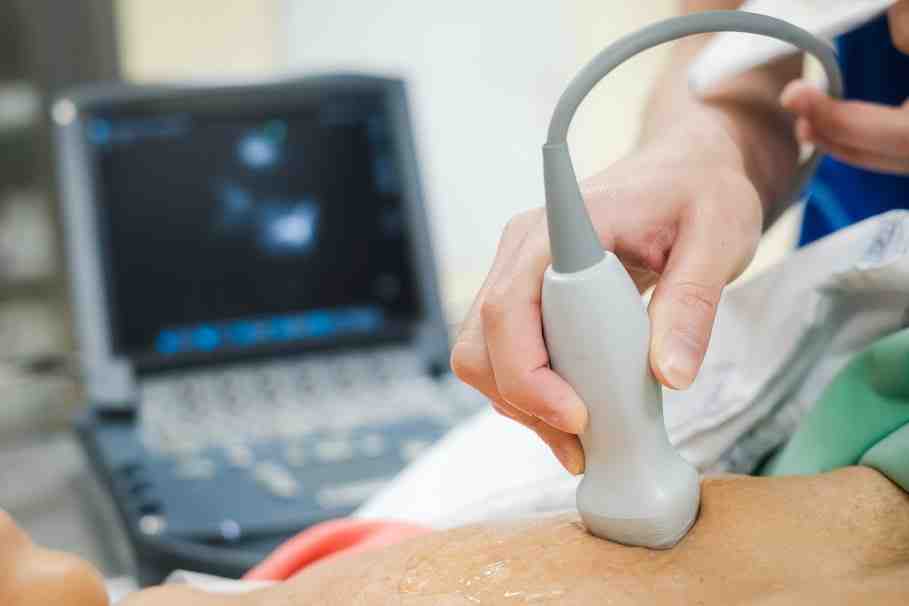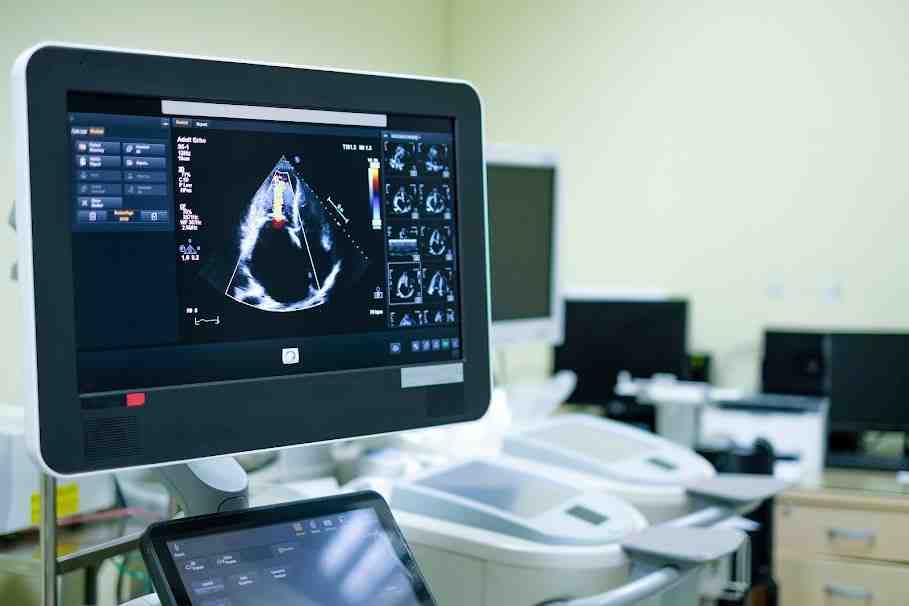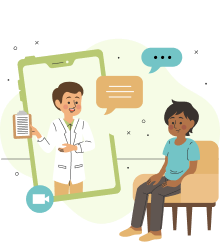
Hyderabad
Starting only @ ₹3750 ₹2250



Ultrasound, also known as ultrasonography (USG) is a safe diagnostic tool in modern medical sciences. It doesn’t need any radiation, rather it uses sound waves for producing images. So, it’s commonly used during pregnancy and for repeated scans, even in children and older adults.
For most people, there’s no risk at all when getting an ultrasound. It’s non-invasive, painless, and doesn’t involve needles (unless the purpose is guided biopsy). Ultrasounds take 30 to 60 minutes. Once it’s done, you can wipe off the gel, get dressed, and go about your day. There’s no downtime or major precautions to follow.
However, like any other imaging test, it carries certain limitations. Ultrasound waves don’t travel well through air or dense bone, so, doctors don’t prefer it to scan areas like the lungs or brain. Some deeper structures in the body might also not appear clearly depending on body type or organ position. In such situations, doctors recommend other scans like an MRI, CT, or X-ray for a better look. At Pristyn Care Zoi Hospital, for scans, we employ advanced, low radiation scanners that provide real-time sharp images with faster outcomes and more patient comfort. Book an appointment now.
Leave your name & phone number with us.
We will reach out to you to understand your requirements.
Lab details & charges will be shared with you over the call.
We’ll book your test as per your preferred date and time slot.
Leave your name & phone number with us.
We will reach out to you to understand your requirements.
Lab details & charges will be shared with you over the call.
We’ll book your test as per your preferred date and time slot.
Most ultrasound scans don’t need any special prep. In some cases, doctor gives you a few simple instructions:

First Trimester Scan (6–11 weeks)
Anomaly Scan / Level II Scan (18–20 weeks)
Growth Scan (28–34 weeks)

Ultrasound helps in diagnosing an array of health conditions across different age groups. Most common ones include the following:
Condition / Purpose | Role of Ultrasound |
| Gallstones / Kidney Stones | Visualizes stones in the gallbladder, kidneys, or urinary tract |
| Pregnancy Monitoring | Monitors fetal heartbeat, position, growth, and detects multiple pregnancies or complications |
| Ovarian Cysts / Fibroids | Detects abnormalities, cysts, or fibroids in the ovaries or uterus |
| Liver / Pancreatic Issues | Identifies fatty liver, cysts, enlargement, or structural changes |
| Appendicitis | Helps diagnose appendicitis, especially in children and pregnant women |
| Prostate Enlargement | Transrectal ultrasound checks prostate size and detects abnormalities |
| Breast Lumps | Differentiates between solid lumps and fluid-filled cysts |
| Thyroid Nodules | Detects nodules, irregularities, or enlargement in the thyroid gland |
| Vascular Blockages (Doppler) | Identifies clots, narrowed vessels, or poor blood flow in veins and arteries |
| Pelvic Inflammatory Disease (PID) | Detects inflammation or infection in female reproductive organs |
| Abdominal Pain Causes | Helps detect fluid collections, masses, swelling, or infections in abdominal organs |

| Feature | 2D Ultrasound | 3D Ultrasound | 4D Ultrasound |
|---|---|---|---|
| Image Type | Flat, black-and-white, cross-sectional image | Still, three-dimensional image | Real-time 3D image with motion |
| Purpose | Routine diagnostic use (organ, fetus, tissues) | Structural details (fetal face, spine, limbs) | Same as 3D, but adds movement (e.g., baby yawning) |
| Common Use | Pregnancy scans, abdominal imaging, organs | Advanced fetal scans, cosmetic fetal views | Fetal movement observation, parental bonding |
| Clarity | Basic but medically sufficient | More detailed and lifelike | Same as 3D, with added motion |
| Availability | Widely available in most clinics | Available at select centers | Limited to specialized centers |
| Time Taken | 15–30 minutes | 30–45 minutes | 30–45 minutes |
Dedicated Support to Find Best Centers
Top NABL & NABH Accredited Centers
Get Up to 40% Discount on the Tests
Get Priority Appointment for Your Scans
You need a full bladder for an abdominal ultrasound as it lifts the bowel and forms a well-defined path for sound waves. This gives them better images of internal organs like the uterus, bladder, and ovaries.
No, there are no chances of infection in ultrasound. At Pristyn Care, we abide by strict infection control protocols for every ultrasound. Each probe is thoroughly sanitized with medical-grade disinfectants before and after use, then placed in a high-level disinfection system (Trophon) for added safety.
Yes, ultrasound is safe for toddlers and children of all age groups. It’s a non-invasive test not involving any radiation, doctors use it to diagnose abdominal pain, organ issues, or injuries in kids.
Ultrasound costs in India, depends on the body part being scanned and the type of ultrasound (2D, 3D, or 4D). Advanced scans or those involving pregnancy monitoring may cost more due to specialised imaging needs.
Most ultrasound reports are available within a few hours. If your doctor requires information, like in emergencies, you may get the reports during the same visit.
Ultrasound identifies fluid buildup, cysts, tumors, gallstones, kidney stones, and pregnancy progress. It provides real-time images of your internal organs and soft tissues without employing radiation.
There are no known risks involved in ultrasound. It’s completely safe, even for pregnant women and infants, it involves sound waves rather than radiation.
CT scan uses radiation to produce highly detailed cross-sectional images of the body. Ultrasound uses sound waves and is safer for repeated use, especially for soft tissue and periodic pregnancy scans.